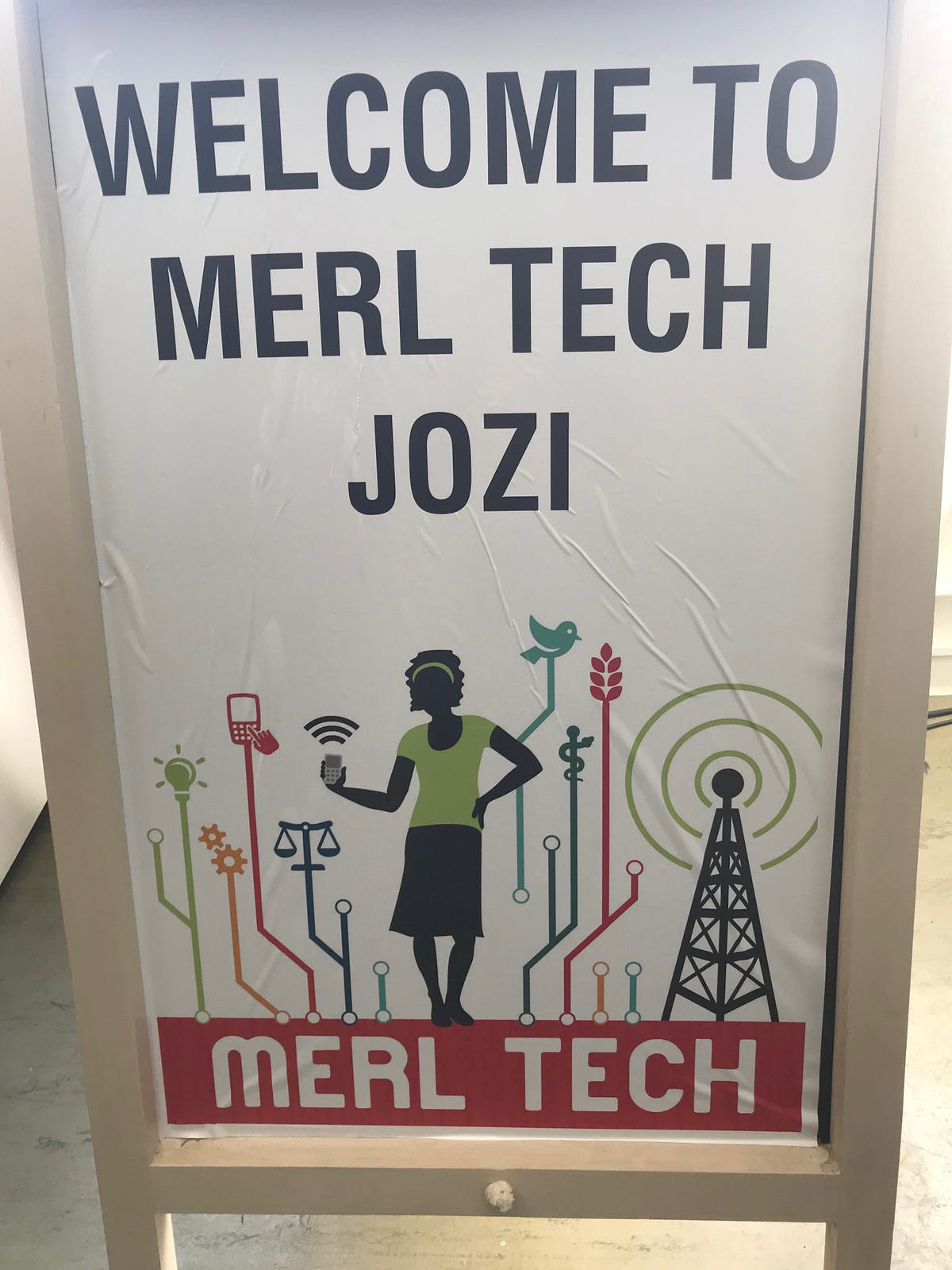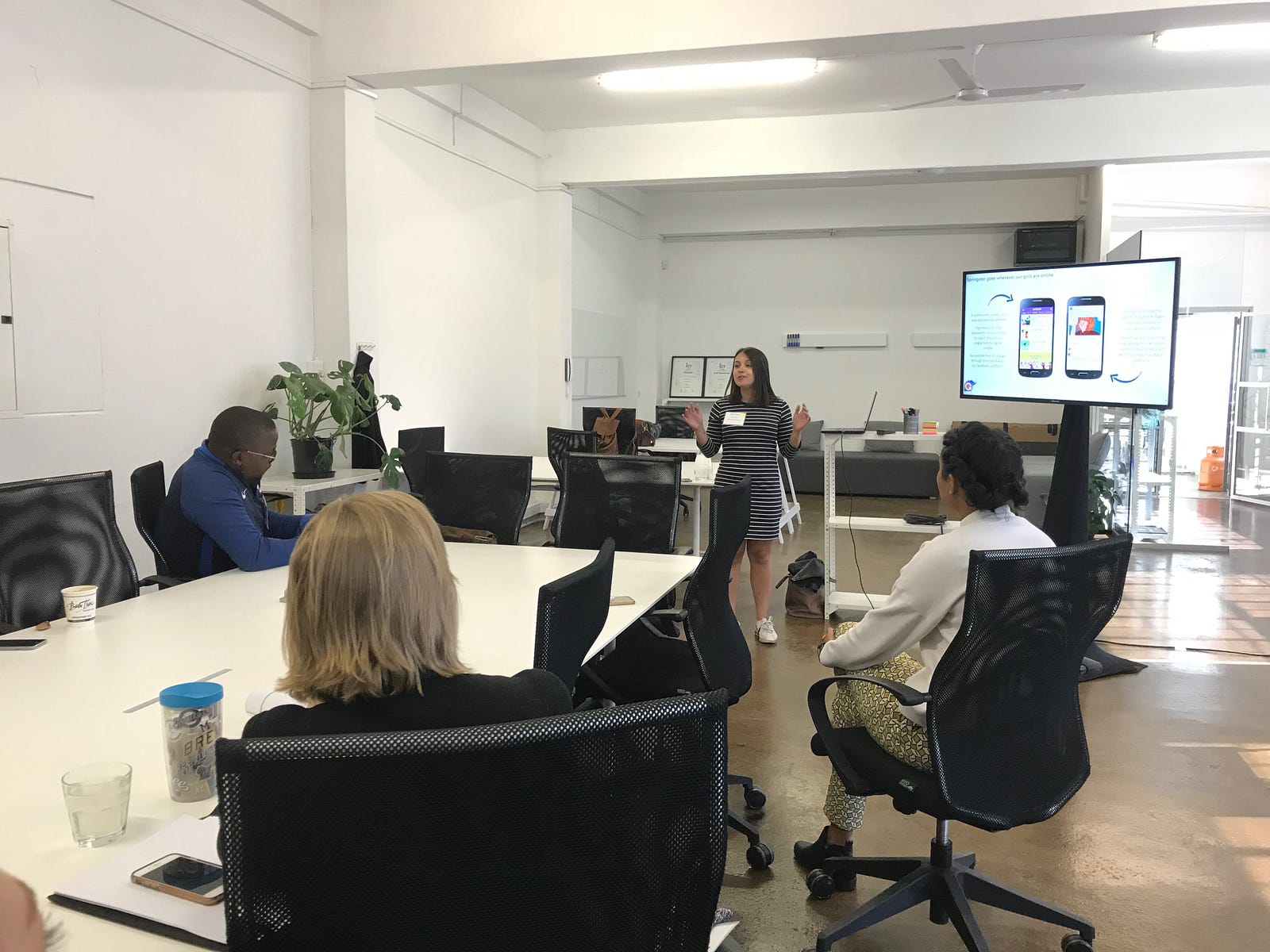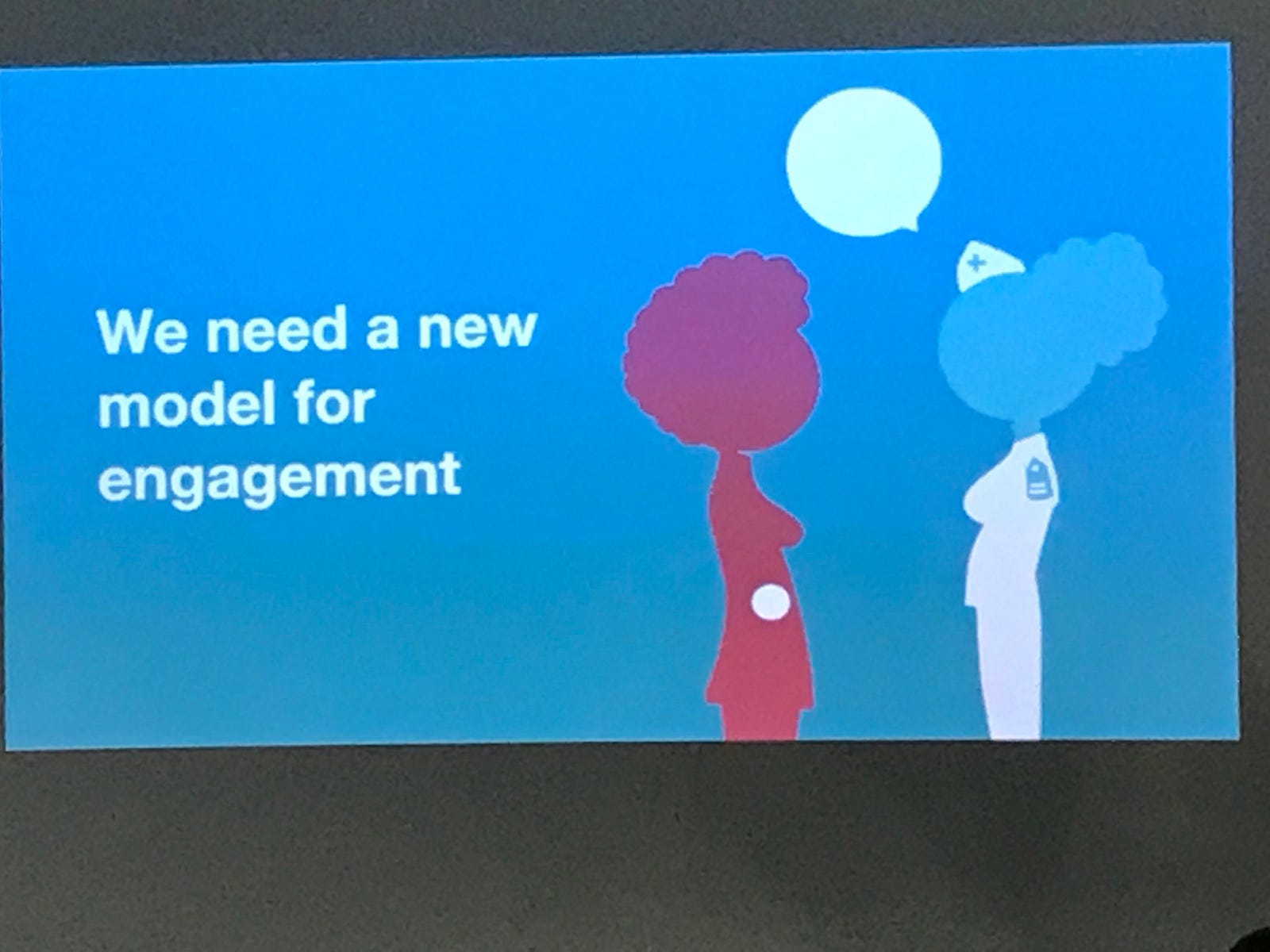How MERL Tech Jozi helped me bridge my own data gap
Guest post from Praekelt.org. The original post appeared on August 15 here.
Our team had the opportunity to enjoy a range of talks at the first ever MERL Tech in Johannesburg. Here are some of their key learnings:
 During “Designing the Next Generation of MERL Tech Software” by Mobenzi’s CEO Andi Friedman, we were challenged to apply design thinking techniques to critique both our own as well as our partners’ current projects. I have previously worked on an educational tool that is aimed to improve the quality of learning of students who are based in a disadvantaged community in the Eastern Cape, South Africa. I learned that language barriers are a serious concern when it comes to effectively implementing a new tool.
During “Designing the Next Generation of MERL Tech Software” by Mobenzi’s CEO Andi Friedman, we were challenged to apply design thinking techniques to critique both our own as well as our partners’ current projects. I have previously worked on an educational tool that is aimed to improve the quality of learning of students who are based in a disadvantaged community in the Eastern Cape, South Africa. I learned that language barriers are a serious concern when it comes to effectively implementing a new tool.
We mapped out a visual representation of solving a communication issue that one of the partners had for an educational programme implemented in rural Eastern Cape, which included drawing various shapes on paper. What we came up with was to replace the posters that had instructions in words with clear visuals that the students were familiar with. This was inspired by the idea that visuals resonate with people more than words.
-Perez Mnkile, Project Manager

I really enjoyed the presentation on video metrics from Girl Effect’s Amy Green. She spoke to us about video engagement on Hara Huru Dara, a vlog series featuring social media influencers. What I found really interesting is how hard it is to measure impact or engagement. Different platforms (YouTube vs Facebook) have different definitions for various measurements (e.g. views) and also use a range of algorithms to reach these measurements. Her talk really helped me understand just how hard MERL can be in a digital age! As our projects expand into new technologies, I’ll definitely be more aware of how complicated seemingly simple metrics (for example, views on a video) may be.
-Jessica Manim, Project Manager
Get it right by getting it wrong: embracing failure as a tool for learning and improvement was a theme visible throughout the two day MERL Tech conference and one session highlighting this theme was conducted by Annie Martin a Research Associate at Akros, who explored challenges in Offline Data Capture.
She referenced a project that took place in Zambia to track participants of an HIV prevention program, highlighting some of the technical challenges the project faced along the way. The project involved equipping field workers with an Android tablet and an Application developed for capturing offline data and synching data, when data connectivity was available. A number of bugs due to insufficient system user testing along with server hosting issues resulted in field workers often not successfully being able to send data or create user IDs.
The lesson, which I believe we strive to include in our developmental processes, is to focus on iterative piloting, testing and learning before deployment. This doesn’t necessarily mean that a bug-free system or service is guaranteed but it does encourage us to focus our attention on the end-users and stakeholders needs, expectations and requirements.
-Neville Tietz, Service Designer

Sometimes, we don’t fully understand the problems that we are trying to solve. Siziwe Ngcwabe from the African Evidence Network gave the opening talk on evidence-based work. It showed me the importance of fully understanding the problem we are solving and identifying the markers of success or failure before we start rolling out solutions. Once we have established all this, we can then create effective solutions. Rachel Sibande from DIAL, gave a talk on how their organisation is now using data from mobile network providers to anticipate how a disease outbreak will spread, based on the movement patterns of the network’s subscribers. Using this data they can advise ministries to run campaigns in certain areas and increase medical supplies in another. The talk by Siziwe showed me the importance of fully understanding the problem you are trying to solve and how to effectively measure progress. Rachel’s talk really showed me how easy it is to create an effective solution, once you fully understand the problem.
-Katlego Maakane, Project Manager
I really enjoyed the panel discussion on Datafication Discrimination with William Bird, Director of Media Monitoring Africa, Richard Gevers, Director of Open Data Durban, Koketso Moeti, Executive Director of amandla.mobi that was moderated by Siphokazi Mthathi, Executive Director of Oxfam South Africa. The impact that the mass collection of data can have on communities can potentially be used to further discriminate against them, especially when they are not aware on what their data will be used for. For example, information around sexuality can be used to target individuals during a time when there is rapid reversing of anti-discrimination laws in many countries.
I also thought it was interesting how projection models for population movement and the planning of new areas for residential development and public infrastructure in cities in South Africa are flawed, since the development of these models are outsourced by government to the private sector and different government departments often use different forecasts. Essentially the various government departments are all planning cities with different projections further preventing the poorest people from accessing quality services and infrastructure.
For me this session really highlighted the responsibility we have when collecting data in our projects from vulnerable individuals and that we have to ensure that we interrogate what we intend to use this data for. As part of our process, we must investigate how the data could potentially be exploited. We need to empower people to take control of the information they share and be able to make decisions in their best interest.
-Benjamin Vermeulen, Project Manager
You might also like
-
What’s happening with GenAI Ethics and Governance?
-
Join the AI and African Evaluation Working Group Meet ‘n’ Mix Session on May 7!
-
Hands on with GenAI: predictions and observations from The MERL Tech Initiative and Oxford Policy Management’s ICT4D Training Day
-
When Might We Use AI for Evaluation Purposes? A discussion with New Directions for Evaluation (NDE) authors